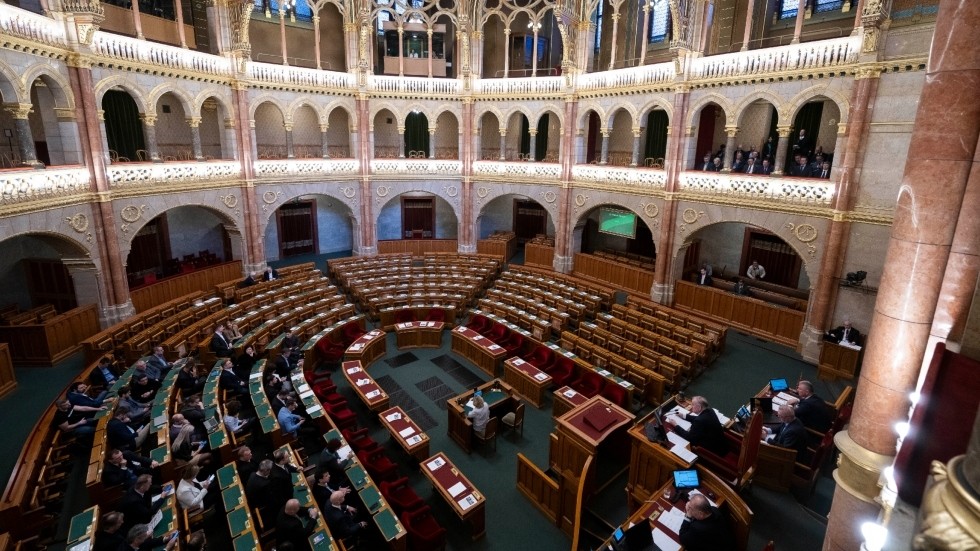
Hungary is the last remaining holdout in approving Stockholm’s bid to join the US-led military bloc

The Hungarian parliament is seen before a scheduled vote on the ratification of Sweden’s NATO membership in Budapest, Hungary, February 5, 2024. © AP / Denes Erdos
Legislators with Hungary’s ruling party have refused to attend an emergency vote on Sweden’s application to join NATO, insisting the Nordic state’s leader must meet with Prime Minister Viktor Orban before they decide on the issue.
In a statement issued on Monday, the Fidesz party said that the ratification vote should take place during a regular parliamentary session, but added: “we are expecting the Swedish prime minister to visit Hungary first.”
“If this is an important issue for the Swedes, the Swedish prime minister will obviously come to Budapest,” Orban’s party added.
Swedish Prime Minister Ulf Kristersson has expressed his willingness to make the trip, but said he would only do so after his country’s NATO application was approved, leaving it unclear how Fidesz lawmakers would proceed.
READ MORE: EU scouring for new Russia-sanctions targets – media
During a meeting with NATO chief Jens Stoltenberg last month, Orban said he would urge the party to vote on ratification “at the first possible opportunity” – words the US Embassy in Budapest cited later on Monday, saying the day’s emergency parliament session would have given him that opportunity.
Opposition lawmaker Agnes Vadai claimed Orban was pushing back the vote due to his “personal vanity,” telling AFP he was seeking to “make headlines in the international press while making a gesture to Russian President Vladimir Putin by undermining the unity of NATO and the EU.”
Though Hungary has condemned Russia’s military action in Ukraine – which prompted NATO applications from both Sweden and Finland – it has declined to follow other EU states in sanctioning Moscow or providing arms to Kiev. The parliament in Budapest voted for Finnish accession last March following months of political wrangling, but has delayed a decision on Stockholm’s bid for months.

Read more
Orban has repeatedly called for a ceasefire in Ukraine and for peace talks between Moscow and Kiev, insisting that Ukraine cannot hope to defeat Russia on the battlefield. His stance, as well as Budapest’s opposition to sanctions on Russia and its blocking of EU military aid to Ukraine, has seen Hungary vilified in Kiev and threatened with counter-sanctions by Brussels.
“The West still thinks that time is on our side. Yet, I think the opposite is true. I think that time is on the side of the Russians, and the longer the war goes on, the more people will die, and the balance of power will not change in Ukraine’s favor,” Orban told a local radio station last week.
The Hungarian National Assembly will have another opportunity for a ratification vote when it reconvenes on February 26, though it remains to be seen whether Fidesz members will give their assent.




